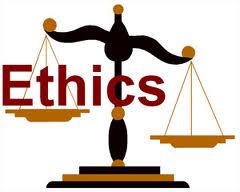In the hustle and bustle of today’s business environment where speed is essential to making decisions, it’s easy to forget two important traits—honesty and ethics. But sometimes the moral fiber of society and the blind ambition of some leaders will not even consider these two most powerful leadership characteristics as part of their decision process.
Honesty
Effective leaders are effective are generally viewed as honest by employees. They keep everyone abreast of what is going on within the organization—good and bad. Leaders who cover all sides are much more appreciated than leaders that conceal information that could easily be shared.
I’ve shared this statement with my audiences during leadership training: “If you never lie, you will not have to remember what you said.” An honest leader will not stray from the truth and will avoid ever sharing information in a less than straight-forward way. By hedging, one opens the door to being caught sharing less than accurate information. Truth and honesty can be difficult to carry out because we don’t want to be the bearers of bad news. However, in the long term, honesty carries the day, gains stronger support from employees and allows the right solutions to be applied to resolve problems.
Another important outcome from honesty is that it builds trust, one of the most critical elements of solid leadership activities. Survey after survey shows a low trust factor stifles relationship building and followship. It is displayed and built on personal behavior, the quality of decisions and open and honest communication by a leader. Avoid the use of trust me as part of your message delivery. Using these words likely grows the distrust of employees. Thus,leaders earn trust and cannot demand it.
Ethics
One definition of organizational ethics says it is the rules of conduct reflecting character and sentiments of the organization. Ethics then helps to establish standards of honesty, loyalty and fairness within the organization.
An article in Forbes, has this statement: “Companies find that ethical business practices increase their competitiveness in their respective industries, helping to further substantiate the notion that a culture of ethics is crucial to sustainable excellence.”
Where does your company and, equally important where do you, stand on the scales of honesty and ethics? Are you leading the pack or on the fringe of chaos because your level of both is a bit anemic?
Why not undertake a study to review all your business practices and employee decisions? Gather accurate facts and look for ways to grow hones and ethical behaviors in your culture. In this global competitive economy companies that fail to create and honest and ethical reputation will soon go the way of the Dodo bird!

